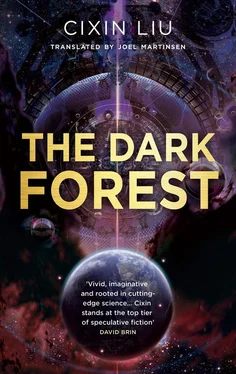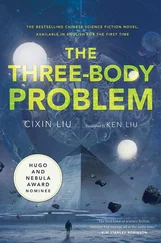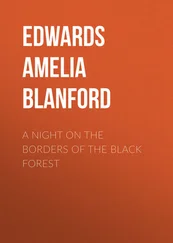He nodded and sat up. “Rong, I used to think that a character in a novel was controlled by her creator, that she would be whatever the author wanted her to be, and do whatever the author wanted her to do, like God does for us.”
“Wrong!” she said, standing up and beginning to pace the room. “Now you realize you were wrong. This is the difference between an ordinary scribe and a literary writer. The highest level of literary creation is when the characters in a novel possess life in the mind of the writer. The writer is unable to control them, and might not even be able to predict the next action they will take. We can only follow them in wonder to observe and record the minute details of their lives like a voyeur. That’s how a classic is made.”
“So literature, it turns out, is a perverted endeavor.”
“It was like that for Shakespeare and Balzac and Tolstoy, at least. The classic images they created were born from their mental wombs. But today’s practitioners of literature have lost that creativity. Their minds give birth only to shattered fragments and freaks, whose brief lives are nothing but cryptic spasms devoid of reason. Then they sweep up these fragments into a bag they peddle under the label ‘postmodern’ or ‘deconstructionist’ or ‘symbolism’ or ‘irrational.’”
“So you mean that I’ve become a writer of classic literature?”
“Hardly. Your mind is only gestating an image, and it’s the easiest one of all. The minds of those classic authors gave birth to hundreds and thousands of figures. They formed the picture of an era, and that’s something that only a superhuman can accomplish. But what you’ve done isn’t easy. I didn’t think you’d be able to do it.”
“Have you ever done it?”
“Just once,” she said simply, and dropped the subject. She grabbed his neck, and said, “Forget it. I don’t want that birthday present anymore. Come back to a normal life, okay?”
“And if all this continues—what then?”
She studied him for a few seconds, then let go of him and shook her head with a smile. “I knew it was too late.” Picking up her bag from the bed, she left.
Then he heard people outside counting down, four, three, two, one. From the classroom building, which until then had been resounding with music, came peals of laughter. On the athletic field people lit fireworks. Looking at his watch, he saw that the final second of that year had just passed.
“It’s a holiday tomorrow. Where should we go?” he asked. He lay on the bed, but knew his character had already appeared beside the nonexistent fireplace.
“You’re not taking her ?” she asked in all innocence, pointing toward the still-open door.
“No. Just the two of us. Where would you like to go?”
She drank in the dancing flames in the fireplace and said, “It’s not important where we go. I think it’s a wonderful feeling just being on a journey.”
“Then we’ll set out and see where we end up?”
“Excellent.”
The next morning, he drove his Accord off campus and headed west, a direction he chose purely because it avoided the headaches of having to traverse the entire city. He felt for the first time the wonderful freedom of traveling with no destination in mind. As the buildings outside slowly thinned out and fields began to appear, he cracked his window to let the cold winter air in. He sensed her long hair catching the wind, and strands of it blew over to tickle his right temple.
“Look, mountains.” She pointed off in the distance.
“Visibility is good today. Those are the Taihang Mountains. They run parallel to this road, and then bend around to form a block in the west, where the road goes into them. I’d say that right now we’re—”
“No, no. Don’t say where we are! Once we know where we are, then the world becomes as narrow as a map. When we don’t know, the world feels unlimited.”
“Okay. Then let’s do our best to get lost.” He turned onto an emptier road, and before they had gone very far, turned a second time. On both sides of them were now endless fields where the snow had not yet melted completely, the snowy patches and snow-free ground roughly equal. No green anywhere, although the sunlight was brilliant.
“A classic northern scene,” he said.
“This is the first time I’ve ever felt that land without the slightest bit of green could be beautiful.”
“The green is buried in the fields and is waiting for springtime. The winter wheat will sprout while it’s still very cold, then this will be a sea of green. Imagine, all this expanse…”
“It doesn’t need green. It’s beautiful right now. Look, doesn’t the land look like a big milk cow asleep under the sun?”
“What?” He looked in surprise, first at her and then through the windows at the patchy snow on either side of the car. “Oh, there really is a resemblance! So, what’s your favorite season?”
“Autumn.”
“Why not spring?”
“Spring… has so many sensations squashed together. It gets tiring. Autumn is better.”
He stopped the car and went out with her to the edge of the field to look at the magpies, which foraged on the ground until they got quite close, at which point they flew off to some trees in the distance. Then they went down a riverbed that was practically dried up, with only a thin stream of water flowing down the center. But it was a northern river all the same, and so they picked up small chilly smooth stones from the riverbed and pitched them in, watching the cloudy yellow water gush out of the holes they broke in the thin ice. They passed a small town and spent a while at the market there. She knelt down by a goldfish vendor, the fish in their glass bowls like liquid flames under the sun, and wouldn’t leave. He bought her two and put them, water and all, in plastic bags on the backseat of the car. They entered a hamlet, but found nothing that felt like the countryside. The houses and compounds were brand new, cars were parked outside of many of the gates, the cement roads were wide, and people were dressed no differently than in the cities—a few girls were even stylish. Even the dogs were the same long-haired, short-legged parasites found in the cities. More interesting was the large stage at the entrance to the village—they marveled at how such a small village could have such an immense stage. It was empty, so with some effort he climbed up and—looking down at his lone audience member—sang a verse from “ Tonkaya Ryabina ” about the slender hawthorn tree. At noon, they ate in another town, where the food was more or less the same as in the city, only the portions were about twice as large. After lunch, they sat drowsily in the warmth of the sun on a bench outside the town hall, and then drove onward with no direction in mind.
Before they knew it, the road had entered the mountains, which were plain and ordinary in shape and devoid of vegetation apart from withered grasses and vitex vines in the crevices of the gray rocks. Over the course of hundreds of millions of years, the mountains, weary of standing, had lain down, sunken into flatness amid time and sunlight, and turned anyone walking among them just as indolent. “The mountains here are like old villagers basking in the sun,” she said, but they hadn’t seen any of those old men in the villages they passed through; none more at ease than the mountains. More than once their car had been stopped by a flock of sheep crossing the road. Beside the road there at last appeared the kind of villages they had imagined, with cave houses and persimmon and walnut trees and stone-tiled low buildings, roofs piled high with stripped corn cob. Even the dogs were larger and more fierce.
They started and stopped as they went through the mountains, and before they knew it the entire afternoon was spent. The sun was setting, and the road had entered the shadows long ago. He drove along a dirt road pitted with potholes up onto a high ridge where the sun still shone, and they decided that this would be the terminus of their journey: They would watch the sun set and then head back. Her long hair blew in the light evening breeze, seemingly striving to seize hold of the last golden rays.
Читать дальше












